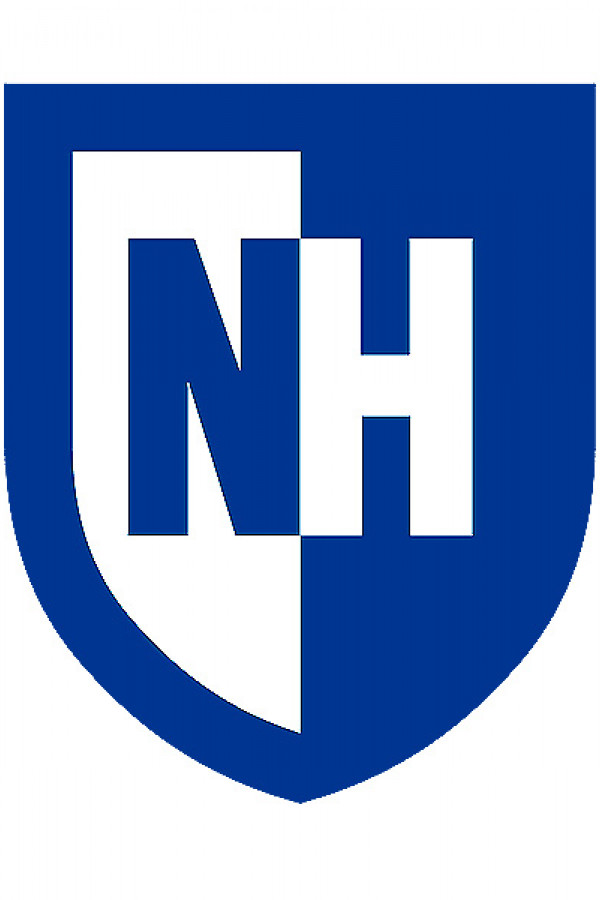The Statistics major at UNH provides a dynamic pathway to mastering the art of data analysis and interpretation. Here, you’ll explore a curriculum that covers modern statistical theory and extensive experience with statistical software, equipping you with advanced techniques crucial for decision-making across industries. With personalized mentorship and hands-on experience, you'll cultivate critical thinking and analytical prowess. This is designed to prepare you for graduate school or a career in a variety of fields including finance, healthcare, and technology, where you’ll leveraging data-driven insights for success and innovation.
What is a Bachelor of Science in statistics?
This degree program offers broad coverage of modern statistical theory and extensive experience using statistical software – including R, SAS and JMP – to analyze complex physical, biological and economic models. The statistics program prepares students for graduate study and provides several elective options that prepare graduates for successful careers in actuarial science.
Why study statistics at UNH?
You’ll study and gain practical experience in statistics alongside accomplished mathematicians, statisticians and educators who have won prestigious honors, including a Grammy Award and MacArthur “genius” grant. You’ll enjoy many small, specialized classes that will prepare you for a wide range of careers. This department has produced many winners of the prestigious Department of Defense SMART Scholarship.
Potential careers
- Computational scientist
- Financial services/actuary
- Mathematician/statistician (government/research/academia)
- Programmer
- Quantitative specialist in business or industry
- Software developer
- Teacher/educator/curriculum supervisor
Curriculum & Requirements
This program prepares students for employment and/or graduate study in a variety of fields and research specializations in which statistical analysis and its applications play a critical role. In addition to its degree programs, the department has an active interest in the actuarial profession. Those interested in actuarial science should seek the advice of departmental coordinator of the actuarial program.
Sample Degree Plan
This sample degree plan serves as a general guide; students collaborate with their academic advisor to develop a personalized degree plan to meet their academic goals and program requirements.
| First Year | ||
|---|---|---|
| Fall | Credits | |
| MATH 425 | Calculus I | 4 |
| Discovery Course | 4 | |
| Discovery Course | 4 | |
| Inquiry Course | 4 | |
| MATH 400 | Freshman Seminar | 1 |
| Credits | 17 | |
| Spring | ||
| MATH 426 | Calculus II | 4 |
| MATH 445 or CS 410C or CS 410P | Mathematics and Applications with MATLAB or Introduction to Scientific Programming/C or Introduction to Scientific Programming/Python | 4 |
| ENGL 401 | First-Year Writing | 4 |
| Discovery Course | 4 | |
| Credits | 16 | |
| Second Year | ||
| Fall | ||
| MATH 528 | Multidimensional Calculus | 4 |
| MATH 531 | Mathematical Proof | 4 |
| Discovery Course | 4 | |
| Discovery Course | 4 | |
| Credits | 16 | |
| Spring | ||
| MATH 527 | Differential Equations with Linear Algebra | 4 |
| MATH 539 | Introduction to Statistical Analysis | 4 |
| Discovery Course | 4 | |
| Writing Intensive Course | 4 | |
| Credits | 16 | |
| Third Year | ||
| Fall | ||
| MATH 645 | Linear Algebra for Applications | 4 |
| MATH 739 | Applied Regression Analysis | 4 |
| 700-level MATH Elective Course | 4 | |
| Discovery Course | 4 | |
| Credits | 16 | |
| Spring | ||
| 700-level MATH Elective Course | 4 | |
| 700-level MATH Elective Course | 4 | |
| Elective Course | 4 | |
| Writing Intensive Course | 4 | |
| Credits | 16 | |
| Fourth Year | ||
| Fall | ||
| MATH 755 | Probability with Applications | 4 |
| MATH 797 or MATH 798 or MATH 799 | Senior Seminar or Senior Project or Senior Thesis | 4 |
| 700-level MATH Elective Course | 4 | |
| Elective Course | 4 | |
| Credits | 16 | |
| Spring | ||
| MATH 756 | Principles of Statistical Inference | 4 |
| MATH Elective Course | 4 | |
| Elective Course | 4 | |
| Elective Course | 4 | |
| Credits | 16 | |
| Total Credits | 129 | |
Degree Requirements
All Major, Option and Elective Requirements as indicated.
*Major GPA requirements as indicated.
Major Requirements
In all courses used to satisfy the requirements for its major programs, the Department of Mathematics and Statistics requires that a student earn a grade of C- or better and have an overall grade-point average of at least 2.00 in these courses.
| Code | Title | Credits |
|---|---|---|
| Required Courses | ||
| MATH 425 | Calculus I | 4 |
| MATH 426 | Calculus II | 4 |
| MATH 445 | Mathematics and Applications with MATLAB | 4 |
| or CS 410P | Introduction to Scientific Programming/Python | |
| or CS 410C | Introduction to Scientific Programming/C | |
| MATH 527 | Differential Equations with Linear Algebra 1 | 4 |
| MATH 528 | Multidimensional Calculus 1 | 4 |
| MATH 531 | Mathematical Proof | 4 |
| MATH 539 | Introduction to Statistical Analysis | 4 |
| MATH 645 | Linear Algebra for Applications 1 | 4 |
| MATH 739 | Applied Regression Analysis | 4 |
| MATH 755 | Probability with Applications | 4 |
| MATH 756 | Principles of Statistical Inference | 4 |
| Electives: Select TWO approved MATH electives, in consultation with the major advisor (at least one at the 700-level) | 8 | |
| Select THREE courses from the following: | 12 | |
MATH 734 | Statistical Computing | |
MATH 736 | Advanced Statistical Modeling | |
MATH 737 | Statistical Methods for Quality Improvement and Design | |
MATH 740 | Design of Experiments I | |
MATH 741 | Survival Analysis | |
MATH 743 | Time Series Analysis | |
MATH 744 | Design of Experiments II | |
| Capstone | ||
| Select one course from the following: | 4 | |
MATH 797 | Senior Seminar | |
MATH 798 | Senior Project | |
MATH 799 | Senior Thesis | |
| Total Credits | 68 | |
- 1
The full Linearity sequence, MATH 525 and MATH 526, may be used to replace the MATH 527, MATH 528, and MATH 645 requirements.
MATH 525 may be used to replace the MATH 645 requirement.
Program Learning Outcomes
- Communicate theoretical foundations and principles of intermediate-level statistics to diverse audiences.
- Design an appropriate method of data collection for a variety of practical applications.
- Perform analyses using the established tools of applied statistics, including production of appropriate software output and its interpretation.
Explore Program Details
Those interested in the Statistics major may also be interested in the following advanced degrees. Students in the program also have the opportunity to participate in the UNH accelerated master’s program.











